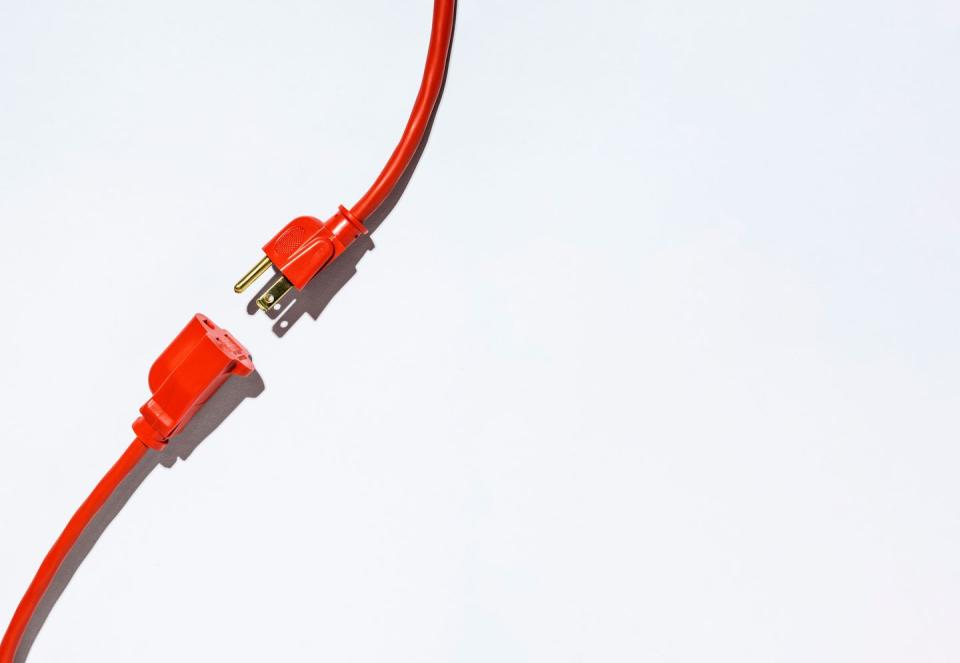3 Ways to Take a Mental Health Day


Joe Van Wyk, a 55-year-old portrait photographer from Austin, makes a living capturing people’s best moments, even when his life feels totally out of focus.
The business is going to dry up, he thinks sometimes. Things are going to be taken away from me.
The most irrational part is that these doubts crop up when he’s actually working hardest. He calls the inner monologue “the turbulence” and has come to recognize it as a sign of burnout, a feeling that, for him, leads to anxiety that can quickly spiral into deep depression.
You may feel trapped in your own version of work-life turbulence these days. A 2018 Gallup poll found that nearly 70 percent of Americans who work full-time have experienced feeling burned out in their current job. For nearly a quarter of us, those feelings occur regularly. A lot of us are now looking for work or spending waaaay more time than we ever bargained for at home with our kids. We have new worries about money, our careers, and what we might have to worry about next.
The term burnout once applied to drug addicts. Then in the 1970s, a New York psychologist named Herbert Freudenberger noticed that health-care workers seemed strung out. Flash-forward a half century and we’re all dealing with some kind of slow-burn trauma from the endless hustle of trying to get ahead. In 2019, the World Health Organization recognized occupational burn- out as “a syndrome” related to “chronic workplace stress that has not been successfully managed.” It doesn’t help when more of us are working from home than ever before and trying to manage that in a way that doesn’t leave us feeling like we’re failing a little at everything.

After years of trying different remedies for his burnout—from pharmaceuticals to therapy and meditation—Van Wyk decided to just unplug from the daily grind entirely. For 24 hours, he’ll live a less stressful reality. Yes, we’re talking about a mental-health day, although survey after survey shows that men still resist the idea, even though evidence suggests that people who are burned out end up taking more sick days anyway and feeling less confident in their job performance.
“The goal is [to] come back refreshed, ready to go, and the various things that were bothering you are back to zero,” says Philip R. Muskin, M.D., a professor of psychiatry at Columbia University.
Here are three men doing just that to be happier and more efficient.
Maxing at Relaxing
The night before his one-day sabbatical, Van Wyk makes a list of intentions. “Imagine being an archer and setting that aim,” he says. “So I might scribble down meditation, breakfast, and then going out with my camera.”
On a recent day, he started with success. Coffee first, then meditating for 20 minutes. “Meditation is sitting on your butt with your eyes closed with a timer set,” he says. “I keep it simple by focusing on my breathing.” (Or just pick a mantra that works for you.) Next up: a blog post about photography and a walk with Frankie, his nine-month-old goldendoodle, followed by a big lunch and a nap. The midday nap might ordinarily lead Van Wyk to feel guilty about being unproductive, but not if it’s on his list.

From Dr. Muskin’s perspective, Van Wyk’s agenda looks pretty smart. “I do think you need to define that day for yourself if it’s going to be successful,” he says. Setting a few goals isn’t being too rigid if you think about it as Here’s what I want to do today. Just keep it loose and achievable so that you create a sense of accomplishment, even if your goal is just to binge-watch Game of Thrones.
Van Wyk can tell the difference in his life immediately. No more turbulence. Mental-health days are “absolute necessities for me to stay emotionally healthy,” he says.
Getting Back to Nature
For Chris Morgan, 51, a British-born ecologist, the ideal mental escape involves physical action. Morgan lives in Bellingham, Washington, and is a cofounder of Uproar, a conservation nonprofit. He also has a wild podcast-production schedule. “I love it and I do too much of it,” he says. “I can feel stress building like a pressure cooker.”
On his recently scheduled day off, Morgan hopped on his BMW R1200 GSAdventure sport bike and roared up into the Cascade Mountains. Near the town of Glacier, he turned onto an unpaved logging road, dumped the bike, and hiked as far as the path would take him. The tree time pays off. “I can go in a basket case and come out totally grounded,” he says.

Some doctors are actually prescribing similar adventures. Stacy Stryer, M.D., is a pediatrician who works with Park Rx America, a physician-initiated partnership with the U.S. Forest Service. Dr. Stryer and others like her suggest outdoor time to patients who are suffering from stress and anxiety as a way to gain perspective. Genevive Meredith, a public-health researcher at Cornell University, recently led a review that found that as little as ten minutes in nature can boost happiness and reduce anxiety.
“Getting into a space where there’s green around you can have a restorative effect,” Meredith says.
Morgan goes solo and covets that.
Joining Your Own Crowd
A strategy consultant who lives in Austin, 36-year-old Adam Nieves Johnson often has days when he can’t control his schedule. Weekends are different, so every other Sunday is slotted for his mental-health vacation.
He’ll hit the dog park with his three Labs—Belle, Beau, and Nina—and then do yoga. But the true focus has always been meeting up with 15 to 20 people either at a local café or more recently via video chat. His crew call themselves SurThrivers, aka “SurThrivers of Narcissists, Borderlines, and Antisocials,” a local group of people who’ve been through abuse and trauma and want peer support to share their experiences.
Johnson had a difficult childhood, which led to issues with relationships. The group shares stories, looking for advice on building healthy boundaries. “Some people see mental-health days as a way to escape, seek shelter, and protect their wounds when life gets stressful,” Johnson says. “A wound doesn’t heal when it’s all bandaged up. It needs oxygen.” That includes him: “I would be nowhere without them,” he says of his fellow members.
Johnson is a former football player and a U.S. Army veteran, so he thinks of these days as a form of high-intensity emotional training followed by a period of recovery. “The more I heal, the easier nontraining days are, the more I realize everyone operates from their own wounds, so I don’t take anything personally,” he says. Each day ends with a mental cooldown: more dog time, some writing, and watching comedy shows.
MH advisor Gregory Scott Brown, M.D., an Austin-based psychiatrist and founder of the Center for Green Psychiatry, believes there’s power in group meetings because they’re so informal, which can make opening up easier. (If you’re not into sharing freely but want the spiritual support, try yoga as a good starting point.)

But Johnson’s method may be particularly helpful for staying ahead of the burnout curve because it’s so frequent. According to Irvin Schonfeld, Ph.D., a psychology professor at the City College of New York, the “half-life” of vacation relaxation tends to be around two weeks. To keep the glow going between sessions, Jor-El Caraballo, a licensed therapist and cofounder of Viva Wellness in Brooklyn, recommends you also try to end every day with the GLAD technique—write down one thing that makes you Grateful, that you just Learned, that you Accomplished, and that Delighted you. It’s a mind-set-improving method for taking a minute to appreciate daily moments. “It actually helps you see more positive things more frequently the more consistently you do it,” Caraballo says.
If that doesn’t work, consider consulting a mental-health professional. Just be sure to call ahead if you want to reach Dr. Muskin. On a weekday earlier this year, he was out renewing his license at the Department of Motor Vehicles in Manhattan. It was a looming stress, so he took a whole day off to stop feeling anxious about it and ended up with time left over to go for a recumbent-bike ride, cook dinner for his family, and watch some TV.
All in a good day’s work.
You Might Also Like

